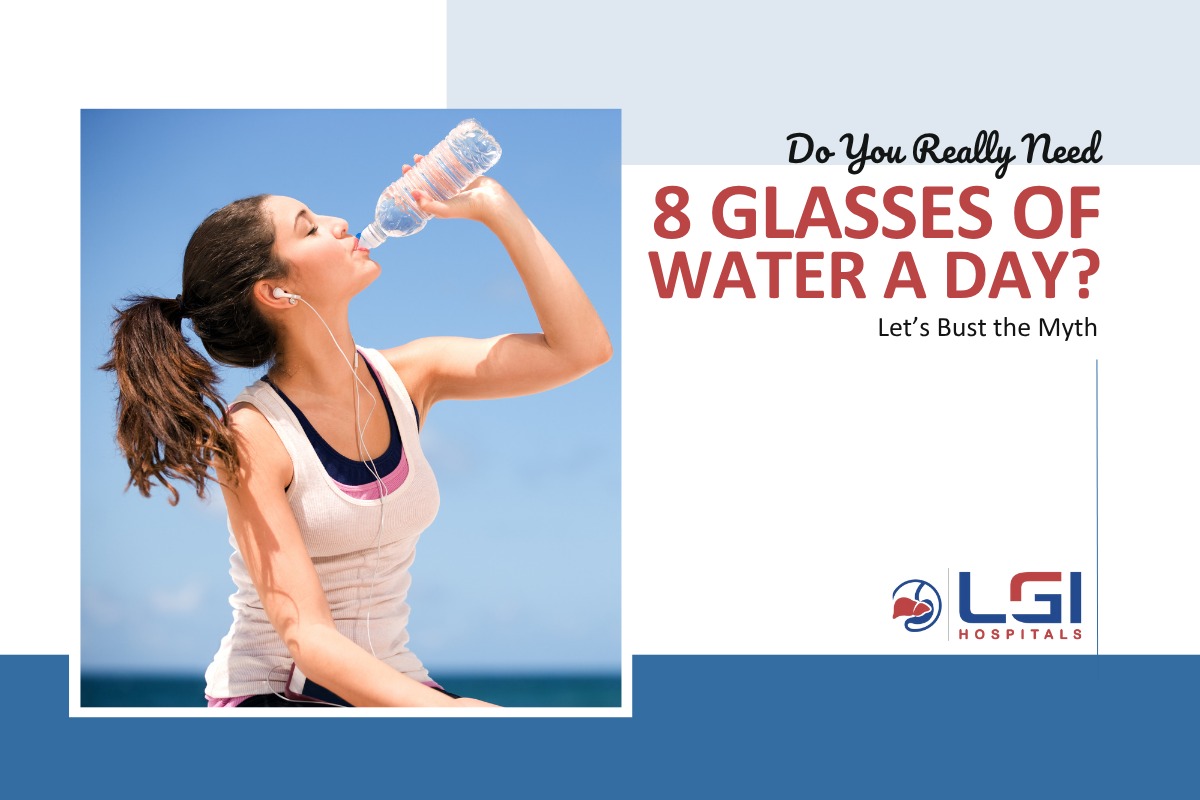“Drink at least 8 glasses of water a day!”
You’ve probably heard this advice from doctors, dieticians, wellness influencers—even your parents. But is this universally accepted hydration rule actually true?
The “8-glasses-a-day” rule has become a standard health recommendation, yet very few people understand where it came from, whether it’s right for them, or how their body truly signals thirst. In this blog, we’ll explore the science behind hydration, bust the myth, and help you find out how much water your body really needs.
Where Did the “8 Glasses of Water” Rule Come From?
The idea likely originated from a 1945 U.S. government recommendation that stated:
“A suitable allowance of water for adults is 2.5 liters daily… Most of this quantity is contained in prepared foods.”
Somehow, over time, this statement was simplified (and misinterpreted) as: “Drink eight 8-ounce glasses of water daily.”
What was missed? The original statement included the water you get from food—especially fruits, vegetables, soups, and even tea or coffee.
The Truth: Hydration Needs Are Not One-Size-Fits-All
Everyone’s water needs depend on various factors:
- Age and body size
- Climate (hot vs. cold weather)
- Physical activity
- Health conditions
- Diet (e.g., high-fibre or high-protein foods require more water)
For instance, a sedentary adult in a cool climate may need less water than an active person working outdoors in summer. 8 glasses may be too much for some and too little for others.
How Much Water Do You Actually Need?
A general recommendation by health experts is:
- Men: ~3.7 liters (about 13 cups) of total water/day
- Women: ~2.7 liters (about 9 cups) of total water/day
Total water includes:
- Water from food (fruits, veggies, cooked meals)
- Fluids like milk, tea, coffee, soup
- Drinking water
Tip: Around 20–30% of your water intake comes from food.
Signs That You’re Well Hydrated
Rather than blindly counting glasses, listen to your body. You’re likely drinking enough if:
- You rarely feel thirsty
- Your urine is light yellow or clear
- You feel energetic and alert
- You have regular bowel movements
Myth-Busting: Common Misconceptions About Water Intake
Myth 1: You must drink 8 glasses daily
Truth: Your needs depend on your body, diet, and environment.
Myth 2: Tea and coffee dehydrate you
Truth: They are mild diuretics but still contribute to your fluid intake.
Myth 3: Clear urine means overhydration
Truth: Very clear urine can mean overhydration, but it also depends on timing and frequency.
Myth 4: More water equals more detox
Truth: While water helps flush toxins, your kidneys handle detoxification. More water doesn’t mean “super-cleanse.”
Who Might Need More Water?
- Athletes or gym-goers
- Pregnant or breastfeeding women
- People with kidney stones or UTIs
- During hot weather or fever
- Those on high-fibre or high-protein diets
When Less Might Be Enough
- Elderly individuals with lower physical activity
- Sedentary individuals in cold weather
- Those with certain kidney or heart conditions (always consult your doctor)
Hydration and Gut Health
Did you know that water plays a key role in digestion?
- It softens stool and prevents constipation
- Helps move fibre through the intestines
- Aids in nutrient absorption
If you’re increasing fibre-rich Indian food, your body needs more water to balance it and avoid bloating or gas.
Struggling With Digestive Issues? LGI Hospital Can Help
At LGI Hospital, Nagpur, our experts treat chronic digestive issues like:
- Constipation
- Acidity
- IBS
- Gut inflammation
We provide personalized advice on diet, fibre, hydration, and lifestyle for complete gut wellness.
Listen to Your Body, Not Just a Rule
The “8 glasses a day” rule is a general guide, not a fixed rule for all. Your hydration needs are unique, and the best approach is to:
- Pay attention to thirst
- Watch your urine color
- Consider your activity, diet, and climate
Instead of overhydrating or underdrinking, aim for balanced hydration that supports your energy, skin, digestion, and overall well-being.

